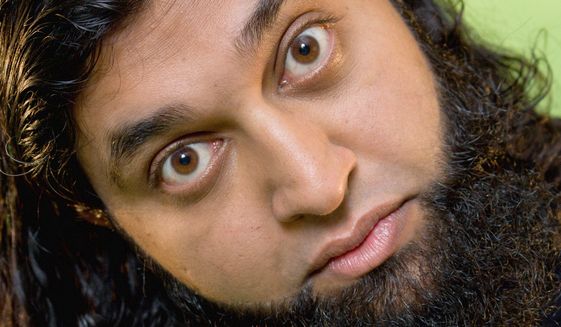
RNA - According to Washington Times, Every major Muslim group in the United States, and almost every Muslim majority country in the world, regularly condemn both terrorist organizations and acts. (It should be noted that Muslim communities also oppose Ebola). Despite this, it is often stereotypically asserted that Muslims intentionally avoid condemning violent extremism.
“As a Muslim, I condemn Ebola. There! I got it out of the way in case anyone comes asking” was the post that started it off. Many members of the Muslim community feel pressure to publicly condemn terrorism, despite having no connection to violent extremism, terror groups, radical beliefs, or any other type of association.
Many find the practice unfortunate, pointing to the fact that members of other religions are not particularly pressured to condemn extremists from their communities, such as the KKK, Westboro Baptist Church or criminals who profess religious affiliations.
When confronted with evidence about the undeniable opposition of the Muslim community to terrorism, accusers frequently switch the complaint, insisting that Muslims fail to do “enough” to condemn violence.
“Talk is cheap, why aren’t you taking action? Show me what you’ve done to actually stop Ebola. And if enough Muslims had really condemned Ebola like you claim, it wouldn’t be spreading, now would it?” said one user, mocking the regular discourse against the Islamic faith.
Another user responded with a frequent Muslim reply, saying “Google ‘Muslims rally against Ebola’.. There have been marches worldwide. Its [sic] not our fault that Fox and CNN ignore our condemnation.”
Followers of Islam point to the widespread evidence, in speeches, rallies, and writings of Muslim communities who oppose terrorism and the corresponding lack of media coverage. Over the summer, anti-ISIS rallies and initiatives were common throughout the Muslim world, however few made the front pages of the mainstream media.
“There have been like what? a couple of hundreds? The vast majority of muslims never protest Ebola. They are happy about it. The protests against Ebola are just to provide a cover to those who are happy about it” was the sarcastic retort.
One poster lambasted the prevalence of misleading studies and fabricated statistics that are often used to indicate Muslim support of violent punishments, terrorism or misogyny by writing “Pew research study in a sample size of 4 Muslims on whether they support Ebola or not, proves that 72% of Muslims world wide do infact support The spread of Ebola with a +-4% error margin.”
“Ebola are real Muslims, you ‘moderates’ just haven’t read the Qur’an properly. There is nothing in Islam that Ebola is doing wrong …,” said a different individual, satirizing the argument that Muslims who condemn terrorism do not truly understand Islam.
The post also refers to the retrovirus “Ebola” as a person, referencing a common misunderstanding of the difference between “Islam” and “Muslim”, and the substitution of fabricated descriptors (and slurs) such as “Islamics,” “Mussies,” and other insulting terms.
The posts took a twist when one user posted an actual CNN headline that read “Ebola: ‘The ISIS of Biological Agents?’ ” The headline appears to be a misguided attempt to generate interest from viewers by combining the spread of the deadly disease to the radicalism of groups in the Middle East.
Satire and humor have become a major component of Muslim responses to stereotypes about Islamic practices. Azhar Usman, the Chicago-based comedian and part of the “Allah Made Me Funny” comedy tour starts his show with the Islamic greeting “As Salaam Alaikum … I notice we have some non-Muslim friends and family in the crowd, so I’ll explain what that means.”
He jokingly continues, “It means ‘We’re gonna kill you.’ ” After big laughs from the crowd, he explains “It actually means, ‘Peace be to you.’ “
R111/108/C/